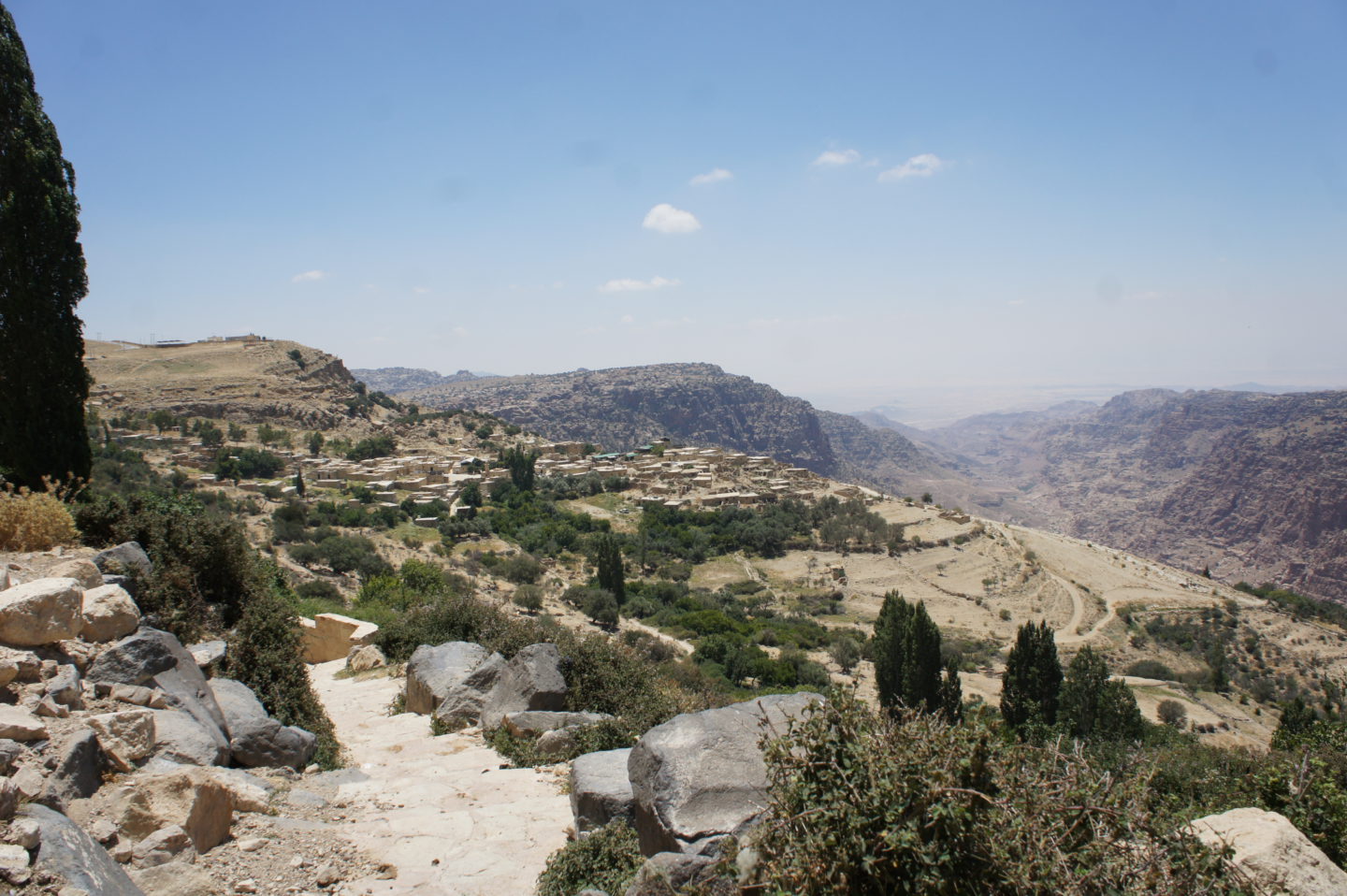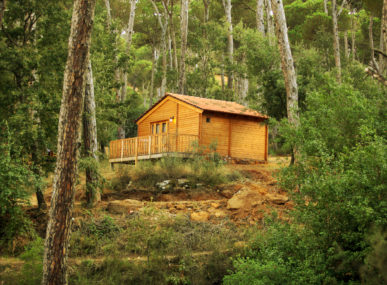Bedouin pastoralists and farmers introduce visitors to ancient, sustainable farming practices in the countryside around Dana, a picturesque 15th century, stone village in mountainous southern Jordan. The guests have come from Wadi Dana Eco-Camp, a locally run accommodation business aimed at preserving two of the region’s most delicate resources — its verdant pastures, and the link between that land and the local community. Bedouin farmers play a vital cultural and environmental role, acknowledged by NATO as crucial to Jordan’s sustainable future.
Both small-scale agriculture and the environment are under threat in Jordan. The country’s population has almost doubled in the past decade, owing in part to mass influxes of refugees from Syria and other neighbors. This urban growth, along with the water-sapping ravages of climate change, has contributed to alarming desertification. Reports indicate that Jordan has lost 70% of its grazable land over the past three decades, placing the nation’s long-term food security in jeopardy. At the same time, economic pressures have driven people to large cities in search of work, robbing rural agriculture of its workforce.
Wadi Dana Eco-Camp helps to counteract these trends by attracting tourists to southern Jordan, where their money provides a local source of jobs in hospitality and agriculture. “We see ecotourism as a replacement for the lost employment opportunities,” says Khalid Khawaldeh, the Dana Cooperative’s sustainable development manager. The camp seeks to lead by example, continually improving its eco-friendly practices and educating guests about the importance of environmentalism.
Visitors are starting to come to Wadi Dana, enticed by the relaxing prospects of winding mountain hikes, starlit evening meals and legendary Bedouin hospitality. Now the camp’s managers want to attract more guests and generate enough revenue to make their practices even more eco-friendly.






